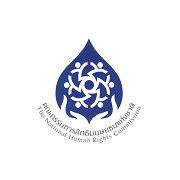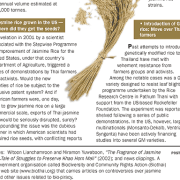20-Dec-2005
IRC Americas Program
The three Andean countries currently negotiating a free trade agreement with the United States, in their double capacity as signatories to the CBD and members of the group of biologically “mega-diverse” countries, are demanding that the agreement establish regulations that clearly specify the terms of access to genetic resources and the population’s traditional knowledge, and in which proper economic consideration, conservation, and development act as guiding principles.
10-Jul-2005
Tech Central Station
For US and Thai trade negotiators meeting next week in Montana, intellectual property rights protections for plant breeders and pharmaceutical innovators are proving to be the most contentious issues in negotiating a Thailand-US Free Trade Agreement (TUSFTA).
17-Mar-2005
Zdnet Australia
Warner Music Australia and other record companies are suing ISP Swiftel Communications for copyright infringement for allegedly hosting and maintaining two Internet computer servers and a Web site called Archie’s Hub which deploys the BitTorrent application. The case is the first to test legislation passed to enact the Australian-United States Free Trade Agreement.






